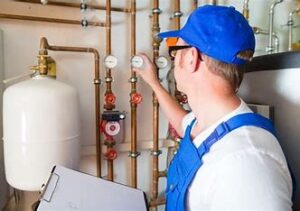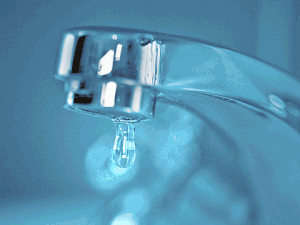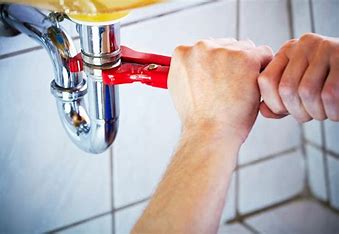In the quest for a more energy-efficient home, homeowners often focus on aspects like insulation, windows, and heating systems. However, an often-overlooked but crucial element is the home’s plumbing system. Effective plumbing can significantly impact your home’s overall energy efficiency, leading to reduced utility bills and a more comfortable living environment. This post delves into how savvy plumbing choices and practices can contribute to a greener, more energy-efficient home.
 1. Hot Water System Efficiency
1. Hot Water System Efficiency
The hot water system is a major energy consumer in most homes. By opting for energy-efficient water heaters, such as tankless or on-demand models, you can significantly reduce energy usage. These systems heat water only when needed, avoiding the energy waste associated with keeping a large tank of water hot at all times. Additionally, insulating hot water pipes reduces heat loss as water travels from the heater to your faucets, further conserving energy. If you need assistance with Plumbing in New Braunfels, TX, call these professionals; they can surely assist you!
2. Fixing Leaks Promptly
A dripping faucet or a leaking toilet may seem minor, but they can lead to substantial water and energy waste over time. For instance, a leaky faucet can waste hundreds of gallons of water a year, and if it’s hot water, that’s energy wasted in heating it. Regularly checking for and addressing leaks is an easy yet effective step towards a more energy-efficient home.
3. Low-Flow Fixtures
Installing low-flow fixtures, including showerheads and faucets, can significantly reduce water usage. These fixtures are designed to provide sufficient water flow for daily tasks while cutting down on overall water consumption. Less water used means less water to heat and, consequently, less energy expended.
 4. Energy-Efficient Appliances
4. Energy-Efficient Appliances
When choosing appliances like dishwashers and washing machines, opt for those with high Energy Star ratings. These appliances are designed to minimize water and energy usage without compromising performance. They not only reduce your carbon footprint but also lower utility bills.
5. Green Plumbing Materials
The materials used in your plumbing system can also affect energy efficiency. For example, cross-linked polyethylene (PEX) piping is more efficient than traditional metal piping in retaining heat in hot water lines.
6. Smart Water Systems
Technological advancements have led to the development of smart water systems that can monitor water usage and detect leaks. These systems provide real-time data and alerts, enabling homeowners to take immediate action, thus conserving water and energy.
Conclusion
Plumbing may not be the first thing that comes to mind when thinking about energy efficiency, but it plays a pivotal role. By making thoughtful choices in your home’s plumbing system, from fixtures and appliances to regular maintenance, you can enjoy significant energy savings. Remember, each step towards a more efficient plumbing system is a step towards a greener, more sustainable home.
Are you ready to enhance your home’s energy efficiency through smarter plumbing? Start by assessing your current system and consider where changes can be made. Whether it’s fixing leaks, upgrading appliances, or installing low-flow fixtures, every change counts towards a more energy-efficient and eco-friendly home.

